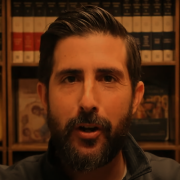I used to teach history at a private Christian school. Like many schools in the classical education movement, we couldn’t afford our own building and had to rent from a church. One day as I was walking to my classroom, I stumbled over a piece of paper in the hallway. Stooping to pick it up, I saw that it was a hand-out from one of the church’s Sunday school classes, titled “Ten Great Doctrines of the Bible.”
I found myself intrigued. I knew that the church had Gnostic leanings, so I was curious to see how they would handle the doctrine of bodily resurrection. However, as I scanned the Ten Great Doctrines of the Bible I soon discovered that the doctrine had not made it onto the list.
Well, I thought, maybe resurrection is mentioned under something else, like salvation. Reading the section on salvation, I saw these words: “Salvation deals with the afterlife, heaven, hell, and whether or not it is safe to die.”
After that I decided to try the doctrine of “Future Things.” Maybe resurrection would make an appearance here. However, echoing the section on salvation, the paper said that the doctrine of future things dealt with “the end of the world, and eternity.”
I stood there in the hallway reflecting on the words, as students filed past me into their classes. How sad, I thought, that the entire Christian hope had been collapsed into fire assurance. How strange that salvation was being reduced to escaping to heaven for eternity and that the teachers of this class had not found it necessary to even mention the hope of bodily resurrection.
It would be nice to be able to say that the teachers at this church were an anomaly within the evangelical tradition. However, the truth is that this Sunday School class reflected a widespread move within the evangelical church towards a belief structure that is more Gnostic than Christian.
This realization was one of the factors that led me to start writing a series of articles for the Colson Center on Gnosticism within the evangelical church. In this series I have explored how the matter-spirit dualism of Gnosticism has infected everything from how many Christians view work to changing practices in funeral liturgies. Below are links to some of the articles in this series :
- Salvation as Escape from the Body (Gnosticism and Evangelicalism, part 1)
- Resurrection and the Sanctification of Matter (Gnosticism and Evangelicalism, part 2)
- Raised a Spiritual Body (Gnosticism and Evangelicalism, part 3)
- Building for God’s Kingdom (Gnosticism and Evangelicalism, part 4)
- Your Day Job is Your Ministry (Gnosticism and Evangelicalism, part 5)
- Gnosticism in the Work Place (Gnosticism and Evangelicalism, part 6)


